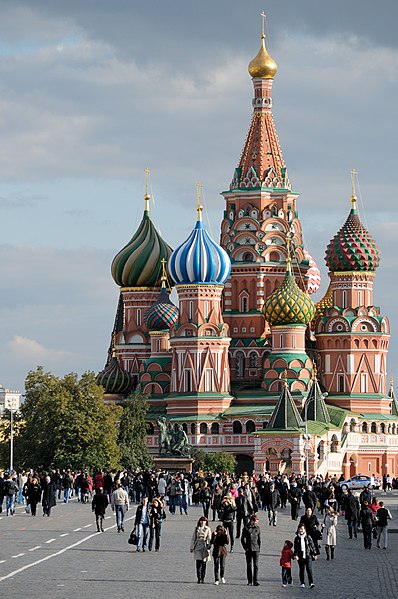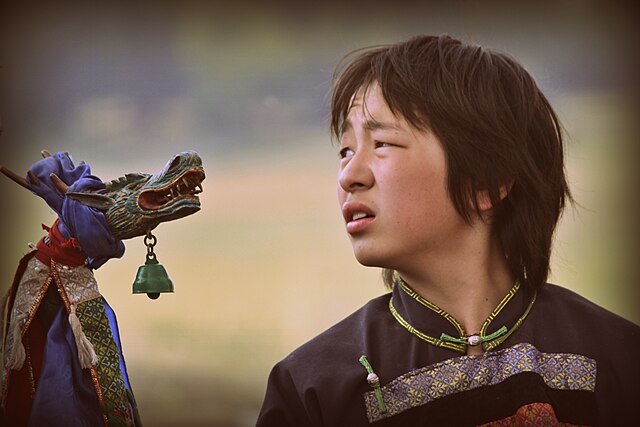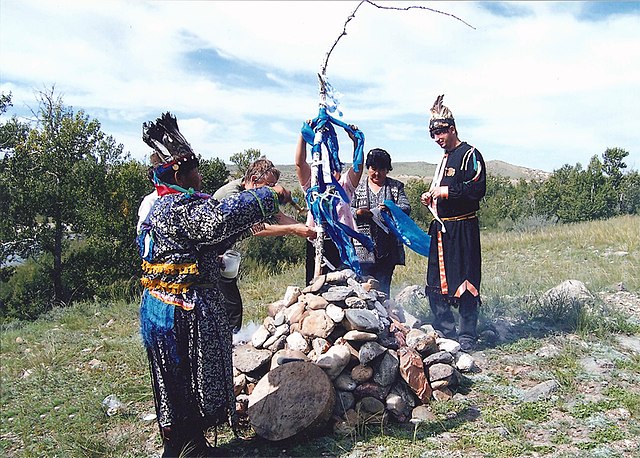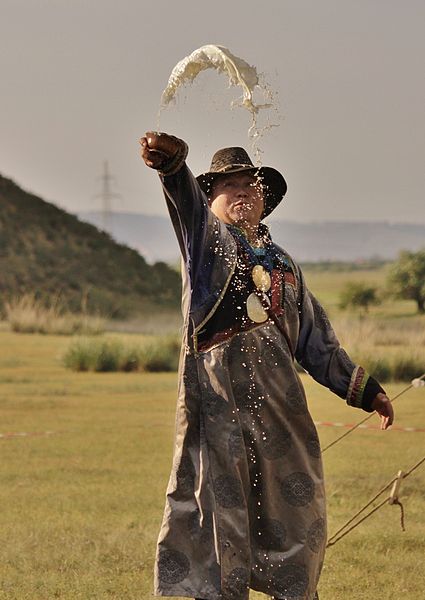Religion in Russia is diverse, with Orthodox Christianity being the most widely professed faith, but with significant minorities of non-religious people and adherents of other faiths. A 1997 law on religion recognises the right to freedom of conscience and creed to all the citizenry, the spiritual contribution of Orthodox Christianity to the history of Russia, and respect to "Christianity, Islam, Buddhism, Judaism and other religions and creeds which constitute an inseparable part of the historical heritage of Russia's peoples", including ethnic religions or paganism, either preserved, or revived. According to the law, any religious organisation may be recognised as "traditional", if it was already in existence before 1982, and each newly founded religious group has to provide its credentials and re-register yearly for fifteen years, and, in the meantime until eventual recognition, stay without rights.
St. Basil's Russian Orthodox Cathedral in Moscow is a World Heritage Site.
The Baptism of Rus' (1885–1896), by Viktor Vasnetsov.
Saint George and the Dragon, 16th-century icon from Pskov.
The Trinity (1729), icon by an unknown artist from Tobolsk.
A large minority of people in North Asia, particularly in Siberia, follow the religio-cultural practices of shamanism. Some researchers regard Siberia as the heartland of shamanism.
A Buryat boy in a shaman ritual
Tuvan shaman Tash-ool Buuevich Kunga consecrating an ovoo.
Buryat shaman performing a libation.
A shaman doctor of Kyzyl, Tuva.








